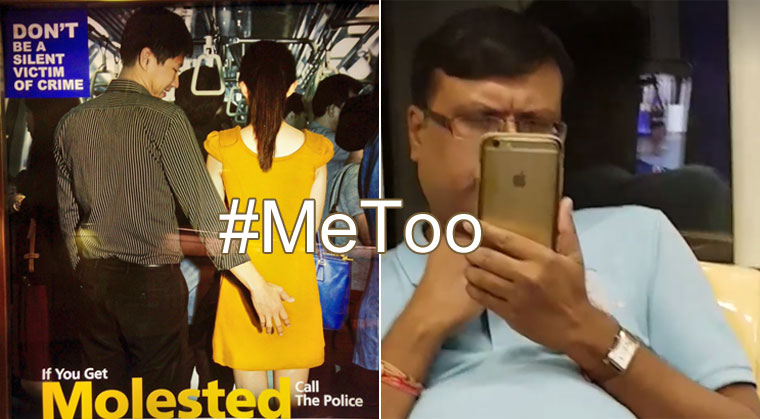The #MeToo hashtag has been trending internationally.
This was after movie businessman-mogul Harvey Weinstein was accused of sexually assaulting and harassing many female actresses in and outside of Hollywood.
This led to a movement where women felt empowered to come forward to share their own experiences of being on the receiving end of predatory sexual conduct.
#MeToo in Singapore
In Singapore, the hashtag has been going around too.
This gives an indication of the prevalence of inappropriate and predatory sexual behaviour that girls and women here have to put up with.
A common theme the #MeToo movement has also revealed is that victims have thus far felt silenced or blamed, with the spotlight more focused on the perpetrators only now.
Recent Singapore cases
However, before the #MeToo hashtag trended online, some women in Singapore have come forward with their experiences with harassment and being recipients of unwanted and untoward behaviour.
With the #MeToo hashtag, it has made it more sobering and shocking to see how often these types of experiences happen in Singapore alone.
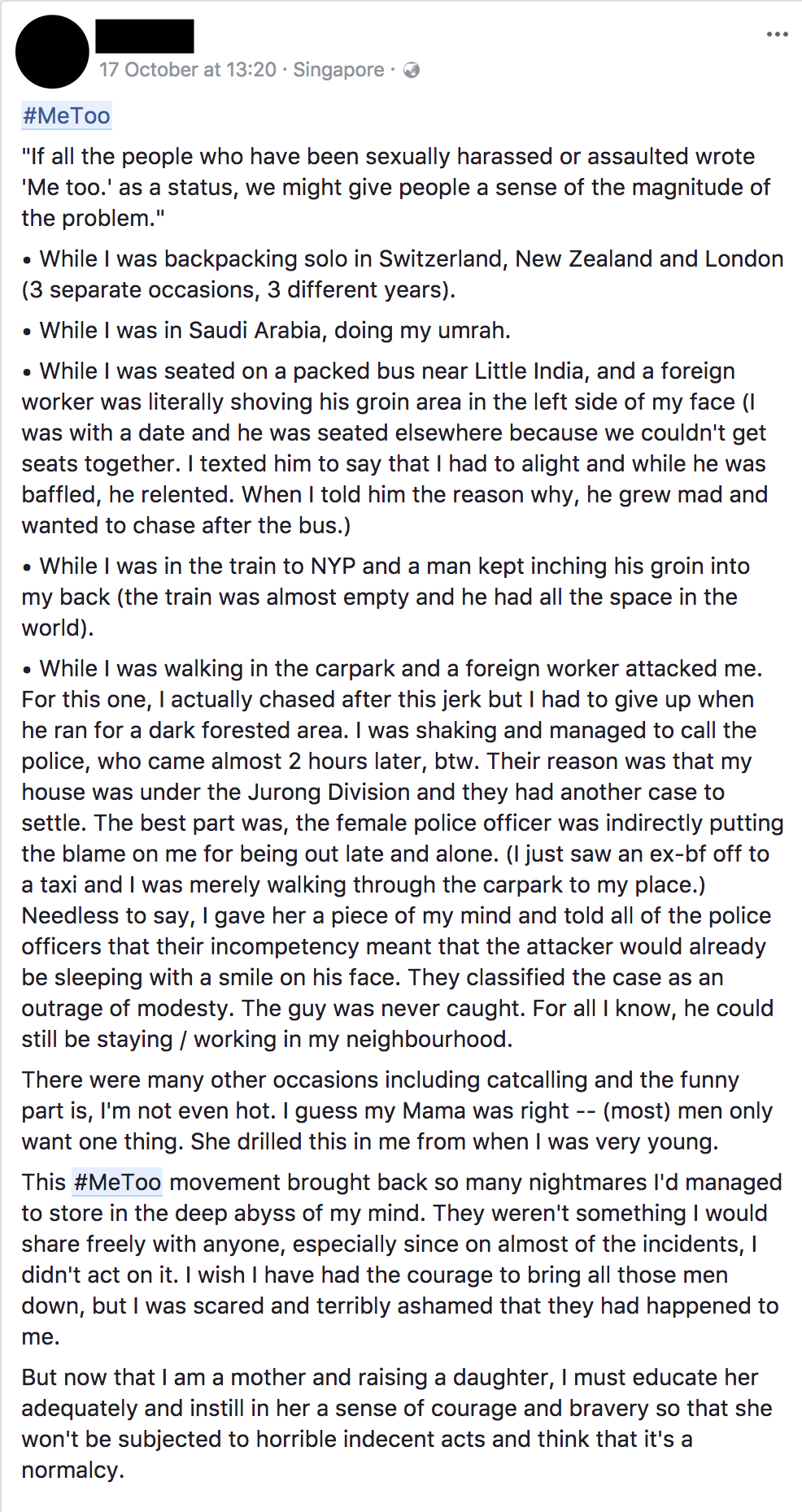
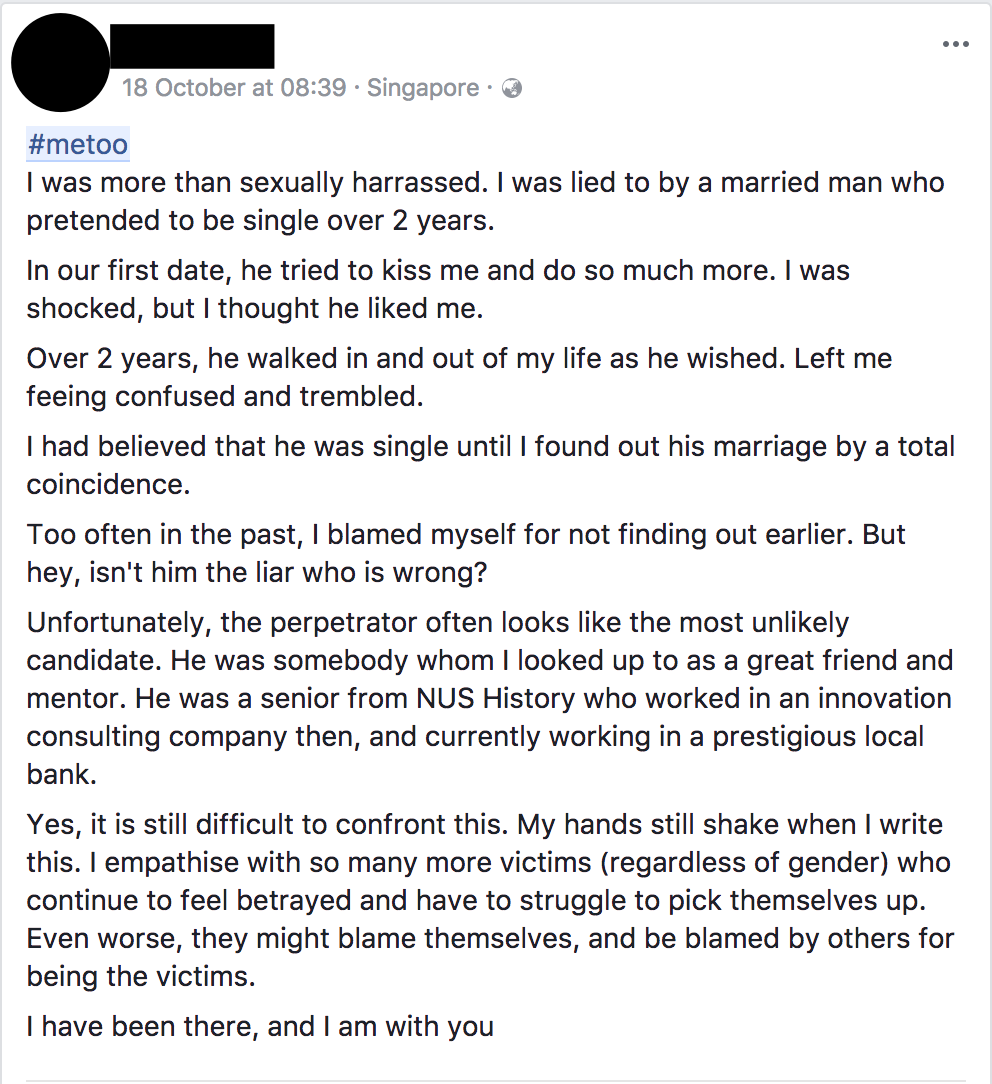
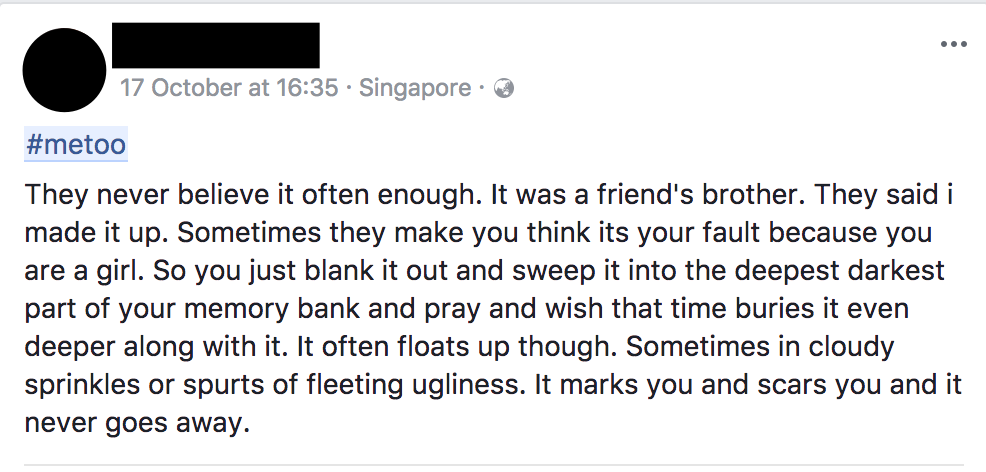
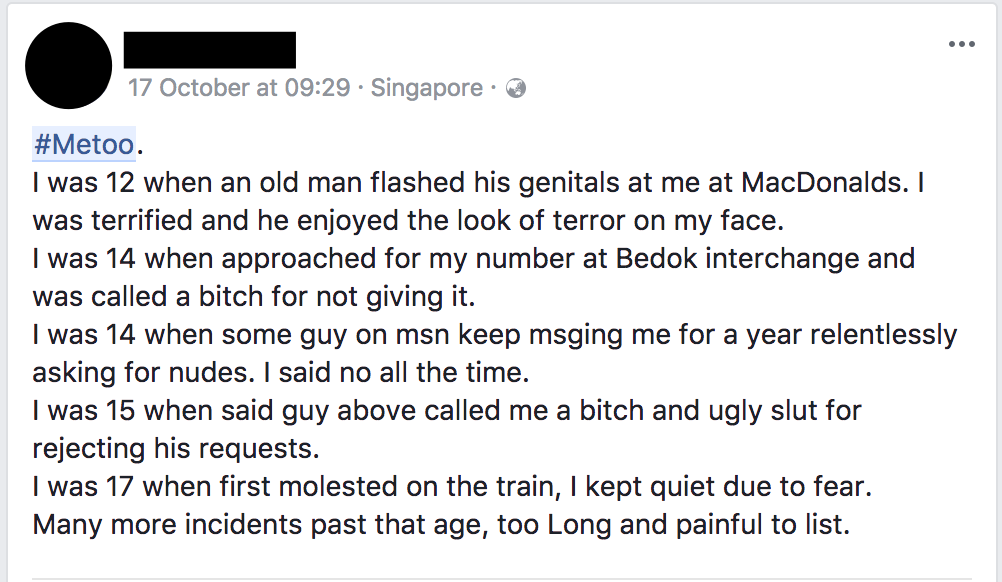
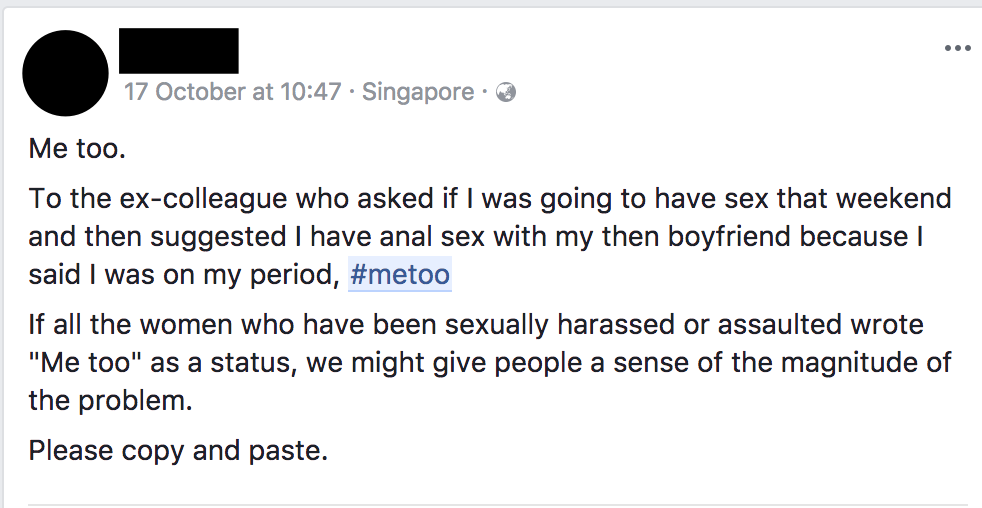
[related_story]
High profile cases
And even before the #MeToo hashtag really got going, a former Channel NewsAsia producer Juwon Park revealed she was repeatedly discouraged from going to the human resource department to complain about a colleague of directing sexist remarks at her while on the job.
Hers was apparently not the first incident, as subsequently, an investigation within the company led to more female colleagues lodging complaints.
The latest word is that the male colleague has been fired.
What can be done?
A hashtag won't wish away the problems of sexual harassment or abuse. This merely increases the awareness of the problem.
But from what has been gathered so far: Not only sisters, friends, cousins, colleagues and relatives have been the subject of such behaviour, men and boys have also been on the receiving end.
So, what happens next moving forward from this hashtag movement?
At the end of the day, awareness alone isn't necessarily going to save another victim.
It's taking action on the perpetrators -- and getting stakeholders involved in this problem to act:
Interestingly, Singapore in recent years have been raising public consciousness of sexual misconduct cases.
What is required more than just #metoo. #Singapore knows how to do it!!! pic.twitter.com/ZglE9M1zha
— ExcuseYou (@ameyakoli) October 18, 2017
#Singapore on message & taking this issue seriously #metoo pic.twitter.com/zKuX5CeJzF
— Jessica Toale (@JessicaToale) October 17, 2017
But as pointed out, these efforts are about what victims can do in the aftermath of being victimised.
The focus, therefore, lies not only on being vocal -- which means, in Singapore's context, to turn to the authorities for help.
But there must be other ways to spread the more fundamental message: Men, don't be beasts.
If you like what you read, follow us on Facebook, Instagram, Twitter and Telegram to get the latest updates.
